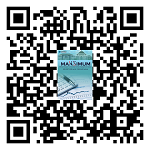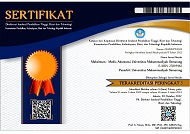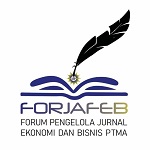Apakah Paradigma Nonpossitivsm (Interpretif, Kritis dan Posmodernis) dalam Akuntansi ”Ilmiah”?
(1) Universitas Negeri Malang
(2) Universitas Islam Negeri KH Achmad Siddiq
(*) Corresponding Author
Abstract
This study aims to show that the non-positive paradigm, namely interpretive, critical and postmodernist, is scientific research. The technique used in this research is literature study by collecting literature either through journals, articles, news, books, and websites related to scholarship in a non-positive paradigm, namely interpretive, critical and postmodernist. The results show that there are several opinions that state non-scientific research methods are unstructured, subjectivity, can be accounted for, but the truth is subjective, differences with journalistic work, escape from statistics, and accounting originates from mathematics. Some of the previous statements can be countered by proving that the non-positive paradigm is scientific. In addition, there are several scientific criteria that are fulfilled by the non-positive paradigm, namely the purpose of scientific thinking, namely obtaining in-depth information, scientific truth with relevant methods and systems and using deductive / inductive analysis methods. There are several main problems that become criticisms in non-positive research, namely validity and validity, as well as research structure. In making it happen, it is done by testing the validity of the data in qualitative research. In the research structure, the interpretive, critical and postmodernist paradigm already has many examples of procedures, structures and methods so that we can use these examples to model and structure our research and perform data validation and reliability so that the results become scientific. The limitation of this research is that there are several sources of information that researchers need but not in the literature review.
Full Text:
PDFReferences
Angger, B. (2003). Teori Sosial Kritis: Kritik, Penerapan dan Implementasinya. Terjemahan. Kreasi Wacana Jakarta
Bachri, B.S. (2010). Meyakinkan Validitas Data Melalui Triangulasi pada Penelitian Kualitatif. Jurnal Tekhnologi Pendidikan. Vol 10 (1):46-62
Burrel, G. dan Morgan, G.1979. Sociological Paradigms and Organisational Analysis. Britain: Athenaeum Press.
Cresswell, J. W. dan Miller, L.D. (2000). Determining Validiting in Qualitative Inquiry. Theory Into Practise. Vol 39 (3):123-130
Creswell, J. W. (2003). Research Design: Qualitative, Quantitative and Mixed Methods Approaches. (2nd Ed.). London, Sage Publications
Geertz, C. (1973). The Interpretation of Cultures. Basic Book
Guba, E.G. & Licoln, Y.S .(1989). Fourth generation evaluation. Newbury Park: Sage Publication
Guion, Lisa. A, David C. Diehl, dan Debra McDonald. (2011). Triangulation : Establishing the validity of qualitative studies. http://edis.ifas.ufl.edu/pdffiles/FY/FY39400.pdf [12 Desember 2017]
Hancock, D. R and Algozzine, B. (2006). Doing Case Study Research. New York: Teachers College Press.
Hartono, A. (2012). Multiparadigma dalam Penelitian Akuntansi: Suatu Tinjauan Konsep. Jurnal Equilibrium. Vol 7(1):59-60
Kamayanti A. (2016). Metodologi Penelitian Kualitatif Akuntansi Pengantar Religiositas Keilmuan. Jakarta Selatan: Yayasan Rumah Penelaah Seri Media dan Literasi.
Kristanti, D. (2012). Syarat-syarat ilmu Pengetahuan Ilmiah. https://sites.google.com/ site/blogilmupengetahuan/artikel-pengetahuan/syarat-syaratilmupengetahuanilmiah [12 Desember 2017].
Kurrohman, T dan Maradonna, A. F. (2012). Akuntansi, Kekuatan, Pengetahuan : Peran Akuntansi dalam Membangun Peradaban. Jurnal Akuntansi Universitas Jember. Vol 10 (1):41-51
Le Comple, M.D. dan Goetz, J.P. (1982). Problems of reliability and validity in ethnographic research. Review of Educational Research. Vol 52 (1): 31-60.
Miles, M. B., dan Huberman, A. M. (1984). Qualitative Data Analysis: A Sourcebook of New Methods. California: SAGE Publications Inc.
Moleong, Lexy J. (2013). Metode Penelitian Kualitatif. Edisi Revisi. Bandung : PT. Remaja Rosdakarya.
Moustakas, C. (1994). Phenomenological Research Method. London: Sage Publications.
Mulyana dan Deden, (2011). Landasan Filsafat Metode Penelitian Kualitatif. Jakarta, s.n.
Riduan A., Triyuwono, I, Irianti, G., Ludigdo, U. (2010). Studi Kritikal-Posmodernis Derridean. Jurnal Akuntansi dan Keuangan Indonesia. Vol 7 (1):38-60
Rosenau, Pauline Marie. (1992). Post-Modernism and the Social Sciences: Insights, Inroads, and Intrusions. Princeton, NJ: Princeton University Press
Rosyinadia, C.D., Sukoharsono, E.G., dan Djamhuri A. (2014). Accounting and Accountability Strategies of Gajah Mada’s Government: Analysis of Power – Knowledge. IOSR Journal of Economics and Finance (IOSR-JEF) e-ISSN: 2321-5933, p-ISSN: 2321-5925.Vol 5 (6):19-24
Strauss, A.,dan Corbin. J. M. (1998). Basics of Qualitative Research: Techniques and Procedures for Developing Grounded Theory. California: SAGE Publications
Sugiyono. (2008). Memahami Penelitian Kualitatif. C.V. Alfabeta. Bandung
Suhartono, S. (2009). Dasar-Dasar Filsafat “Cogito Ergo Sum” Aku Berpikir Maka Aku Ada (Rene Descartes). Ar-Ruzz Media:Yogyakarta
Sukardi. (2008). Metodologi Penelitian Pendidikan, Kompetensi dan Praktiknya. Jakarta : PT. Bumi Aksara.
Sukoharsono, E.G. (1998). Accounting in a New History: A Disciplinary Power and Knowledge of Accounting
Sukoharsono, E.G. (2009). Refleksi Ethnografi Kritis: Pilihan Lain Teknik Riset Akuntansi. Jurnal Akuntansi dan Bisnis, Vol. 4 (1): 91 - 109.
Suwardjono. (2006). Positivism in Accounting Research: What It Can and What It Cannot Do. Paper. The Second Postgraduate Consortium on Accounting 2006. Multiparadigm Accounting: Broadening Our View. Malang.
Suyunus, M. (2012). Ketika Paradigma Positif Mendampingi Paradigma Nonpositif dalam Riset Akuntansi. Jurnal Ekonomi dan Keuangan. Vol 16 (4): 409-432
Triyuwono, I. (2000) . Paradigma Ilmu Pengetahuan dan Metodologi Penelitian. Short Course Metodologi Penelitian Metode Alternatif : Untuk Akuntansi Ekonomi dan Manajemen. 8-9 Mei. CBIES FE Unbraw- IAI KAPd
Triyuwono, I. (2006). Persfektif, Metodologi, dan Teori Akuntansi Syahriah. Jakarta: PT Raja Grafindo Persada.
Warsono, S. (2011). Adopsi Standar Akuntansi IFRS: Fakta, Dilema, dan Matematika. ABpublishER. Yogyakarta.
Article Metrics
Abstract view : 1094 timesPDF - 9 times
DOI: https://doi.org/10.26714/mki.11.1.2021.13-26
Refbacks
- There are currently no refbacks.
-----------------------------------------------------------------------------------------------------------------------------------------------------------------------------------
 | MAKSIMUM: Media Akuntansi Universitas Muhammadiyah Semarang |
![]()
Maksimum: Media Akuntansi Universitas Muhammadiyah Semarang is licensed under a Creative Commons Attribution Attribution-NonCommercial-NoDerivatives 4.0 International License.

















